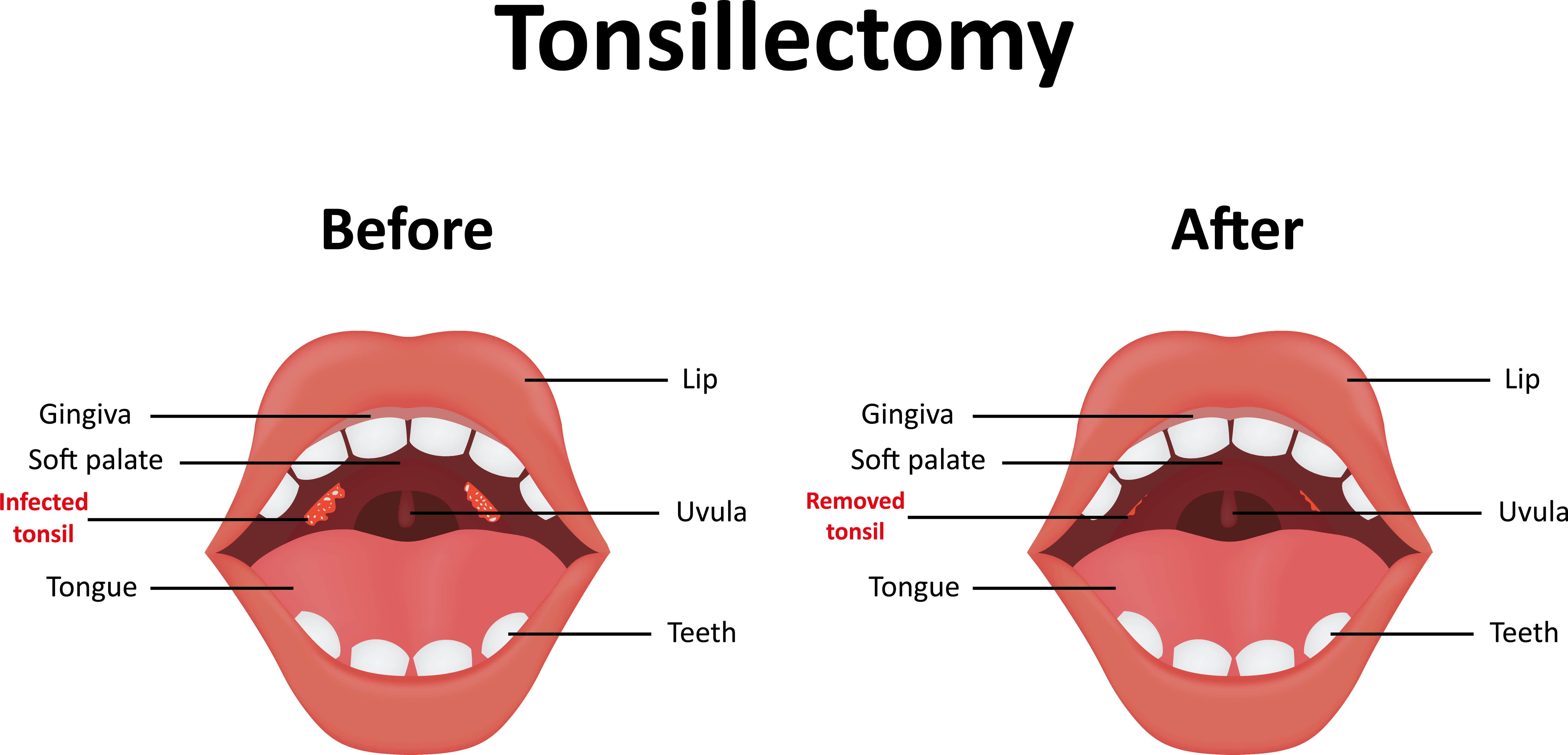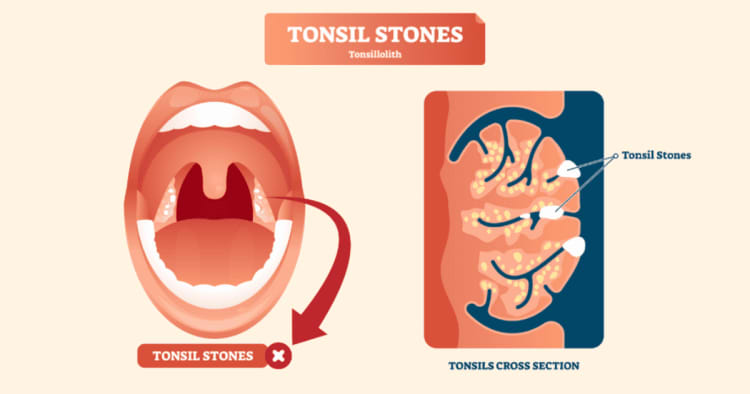I'm glad you found us on the world wide web. You won't want to miss this — Sign up for our newsletter, The Pill: quality health content served in weekly doses.
Tonsil stones are either small, whitish or yellowish, smelly masses that can occur in both adults and children.
People with tonsil stones are not always aware of their presence! Although they are often the size of a rice grain, they vary in size, and can grow much bigger.
Read on to find out the 4 ways how you can get rid of tonsil stones.
What are tonsil stones?

Located at the back of your throat are two tonsils — one on each side — and they have crevices, tunnels, and pits called tonsil crypts. Tonsils are important, especially in early childhood, as they protect your body from upper respiratory infections.
Tonsil stones, or tonsilloliths, can occur in both adults and children. Often found in both tonsils, they are either whitish or yellowish, and are small smelly masses.
People with tonsil stones are not always aware of their presence [1]! They vary in size but are often the size of a rice grain. They can also grow much bigger.
What causes tonsil stones to form?
Tonsil stones are normally formed from debris that gets trapped in the pockets of the tonsil crevices. Examples of the debris that get stuck are:
- mucus
- saliva
- dead cells
- food
When debris gets trapped, build-ups may form. Bacteria may feed onto them, resulting in a smelly odour.
What happens when tonsil stones form?
Tonsil stones are generally harmless [2], though they cause bad breath, also known as halitosis. These stones, trapped in the tonsil crevices, usually form from food and/or other debris.
However, you should note that they may be indicators of:
- poor oral hygiene
- chronic tonsil and/or sinus issues
- persistent mouth breathing
- issues with the microenvironment in the throat
- large tonsils that trap food and debris
- sinusitis
- inflamed tonsils
Treatments available for tonsil stones
Your ear, nose and throat (ENT) doctor will be able to diagnose and prescribe an appropriate treatment. If the stones are found on only one of the tonsils, he/she will need to ensure that they are not a sign of anything sinister.
Tonsil stones can be treated in a range of ways, from taking simple measures to undergoing surgery. Below are 4 ways you can prevent and treat tonsil stones.
1. Improve oral hygiene
Good oral hygiene is important. Most patients do not remove sufficient plaque from their teeth.
As recommended by dentists, you should always brush your teeth twice daily and floss regularly. These help to improve plaque control [3].
Cleaning the back of your tongue is a good way of preventing tonsil stones. Additionally, you can include gargling with warm saltwater in your routine [4].

2. Stay hydrated
There is some truth to many mothers' attribution of many sicknesses and ailments to insufficient hydration.
Drinking water frequently creates an oral environment that does not allow oral bacteria to thrive. Moreover, drinking water also helps flush debris from spaces and crevices in the mouth.
This is especially useful when going to the washroom to brush teeth is not possible e.g. during a meeting or when taking an exam.
3. Treat existing nasal issues
Your doctor may suggest treating nasal issues that cause mouth breathing. Examples of nasal issues that can cause you to mouth breathe include:
- allergies
- sinusitis
- cold/flu
- deviated nasal septum
4. Surgery
If the above methods are deemed to be ineffective or insufficient, your doctor may recommend surgery if your case is severe.
Removing your tonsils is the most effective way of removing tonsil stones [1] and preventing future occurrences. The procedure is known as a tonsillectomy, and it is a day procedure performed under general anaesthesia [5].

Conclusion
A recap: While tonsil stones are usually harmless, they may indicate issues with your oral hygiene or the state of the microenvironment in your throat. Nevertheless, there are several treatment options to help with your condition.
In cases where tonsil stones affect your quality of life, you should consult an ENT doctor who can assess your situation thoroughly. He/she will then be able to recommend an appropriate treatment.









